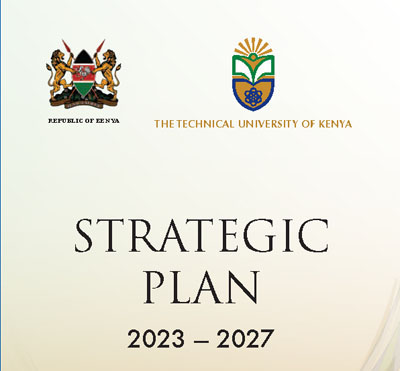The Technical University of Kenya (TUK) will participate in the Africa Centre for Career Enhancement and Skills Support (ACCESS 2.0) project for the 2025-2029 period. This initiative, funded by the German Academic Exchange Service (DAAD), and aims to enhance career readiness, entrepreneurship, and service-learning among students across multiple institutions in Africa.
The project is spearheaded locally by Mount Kenya University (MKU) in collaboration with10 other Kenyan universities, including TU-K. Professor Collins Miruka leads the implementation of the project at TU-K, ensuring that students and faculty benefit from the initiative’s innovative programs.
Key Project Activities at TU-K
1. Development of a Joint Entrepreneurship Curriculum
- A committee of experts from participating universities will design a competency-based entrepreneurship curriculum, integrating capstone assignmentsand self-paced learninginto university Virtual Learning Management Systems (VLMS).
- An AI-powered monitoring toolwill be deployed to track and enhance student engagement.
2. Enhancing Service-Learning in the MBA Program
- The project will integrate Research Methodologyand Unit Specialization Service-Learning (SL) Modules, allowing students to engage in real-world consultancy projects with SMEs while developing their research projects.
3. Establishment of Student ACCESS Business Ideas Clubs
- Each year, TUK will nominate two top-performing students to participate in a five-day business bootcampfeaturing industry experts and entrepreneurship mentors.
- Selected students will gain access to networking opportunities with local and international innovation hubs, strengthening their entrepreneurial potential.
- Faculty members will also participate, ensuring academic and professional mentorship.
Opportunities for Faculty and Students
Through ACCESS 2.0, TUK faculty and students will gain access to research funding, business incubation programs, and industry collaboration opportunities. Additionally, the initiative will support the development of practical skills, bridging the gap between academia and industry to enhance employability and entrepreneurship.
For more details on ACCESS 2.0, visit the ACCESS Centre website

